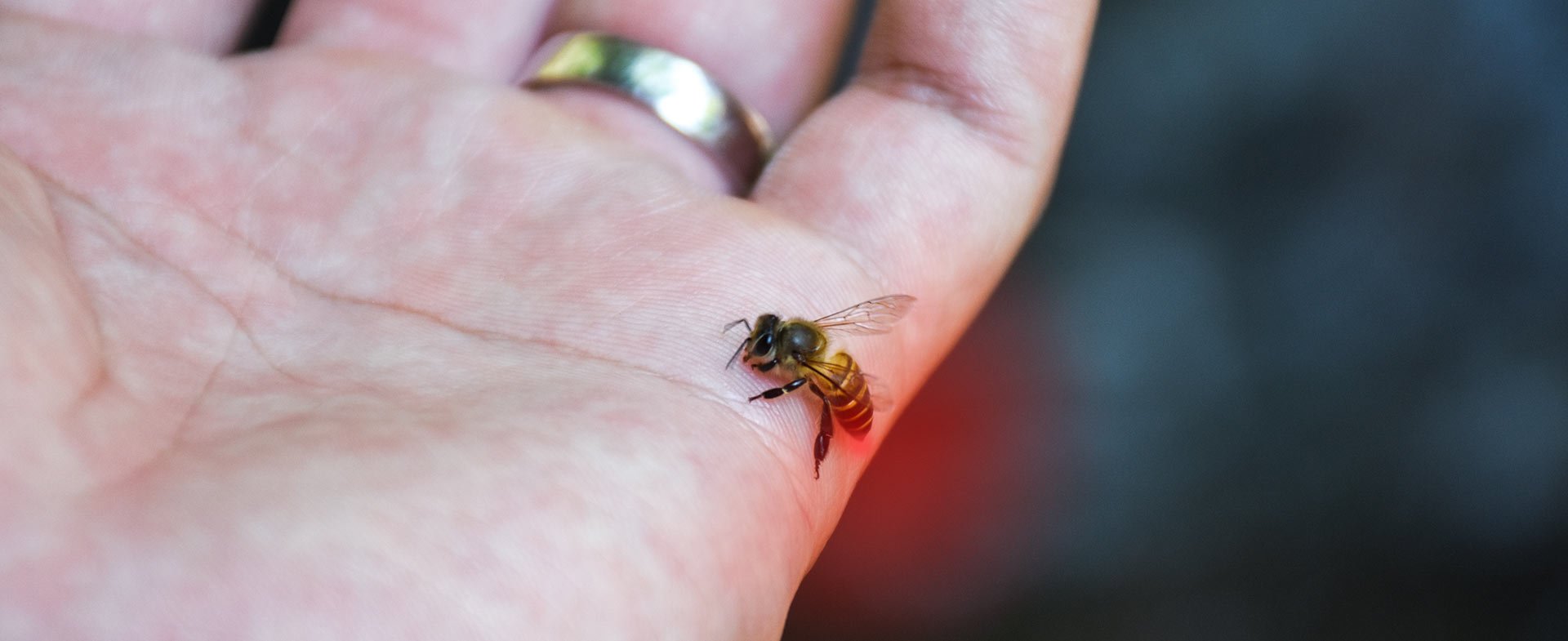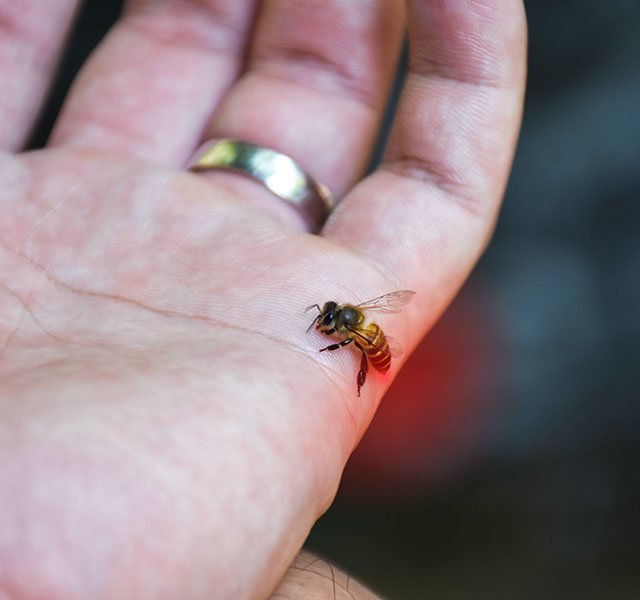Spring and summer bring sunny skies, blooming flowers and fresh-cut grass. You might visit campgrounds, parks and lakes, toting plenty of snacks. Especially this year, as we follow social distancing guidelines to gather in small groups in a spacious backyard or eat at an outdoor restaurant patio, spending time outside is even more a part of socializing. But it's not only people who are outdoors mingling with the high pollen counts. It's bees and wasps, too.
"Over 200,000 people each year report they've been stung by a bee," says Mira Otto, M.D., an internal medicine specialist at Henry Ford Health. But stings aren't usually a result of bees bothering people. They happen when people provoke bees by nosing around in bee territory.
Even in the fall, bee and wasp activity may be higher as they prepare their hives for winter -- just as many outdoor popular activities like visiting a cider mill are getting into full swing too.
Preventing Stings
No one ventures into the great outdoors expecting to get stung by a bee or wasp, but there are some things you can do to avoid being a victim. A few of the most obvious:
- Steer clear of hives: "Don't try to remove a hive by yourself," Dr. Otto advises. "Seek help from a professional."
- Cover up: If you're spending time hiking, biking or camping, wear clothes that offer more coverage.
- Keep food under wraps: If you're eating or drinking outdoors, be sure to keep food and beverages in closed containers.
- Don't get defensive: If you leave bees alone, chances are good they'll leave you alone, too. Instead of swatting at them, back away slowly.
Keep in mind that bees are a good thing for us and for our environment. Even wasps, which eat other insects, help balance the natural ecosystem. Our job is to avoid negative interactions with them.
What to Do If You Get Stung
Bee and wasp stings happen, even when people take the proper precautions. Fortunately, for most people, getting stung is easily treated. Here's how:
- Take the stinger out: If you're able to remove the stinger a bee leaves behind, that's always the best approach. Bees release venom quickly, so the sooner you can tackle it, the better. Use a pair of tweezers to pluck the stinger out or scrape it away with a credit card. Miss your window? Don't fret. The stinger will eventually work its way out.
- Wash the area: After you remove the stinger (if you can find it), wash the area with soap and water. No visible stinger? Wash the area thoroughly with mild soap and water.
- Apply a cold compress: Applying a cold compress can help reduce pain and swelling.
- Take a pill: Nonsteroidal anti-inflammatory drugs, such as ibuprofen (Motrin®) can help minimize pain. If the area feels itchy and inflamed, take an antihistamine like Benadryl® or Zyrtec®. But don't scratch. Scratching the area can worsen itching and increase the risk of infection.
- Watch and wait: Keep an eye on the stung area. If a blister develops, don't try to drain or pop it, which can lead to infection. "Redness, swelling and inflammation are normal in the hours after a sting," Dr. Otto says. "But if the irritation continues or extends over a larger area, say over 10 centimeters, get checked out by a health professional."
Bee Safe
Most bee or wasp stings are nothing to worry about. You might get some redness, pain and swelling, but the reaction should dissipate in a day or two. About 10% of people will experience a more serious reaction and another 3% will suffer from a serious allergic reaction that requires medical attention.
"If more than three days have passed and you're still getting redness and swelling, see a doctor," Dr. Otto says. "You might need antihistamine, steroid or epinephrine injections for a few days."
Signs of a severe allergic reaction include:
- Lip or tongue swelling
- Shortness of breath
- Dizziness
- Flushing
- Nausea, vomiting and diarrhea
"Severe reactions happen within a few minutes of getting stung," Dr. Otto explains. If you notice any of these signs or symptoms, call 911 or head to the nearest emergency room. In rare cases, bee stings can lead to an anaphylactic reaction, which can be life-threatening.
To find a doctor at Henry Ford, visit henryford.com or call 1-800-HENRYFORD (436-7936).
Dr. Mira Otto is an internist, seeing patients at Henry Ford Medical Center – Ford Road in Dearborn.



